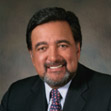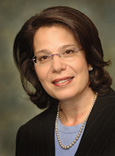AS/COA Online - Exclusive Interview: Governor Bill Richardson on Washington's Latin American Ties
/
Governor Bill Richardson (D-NM) spoke with AS/COA Online Managing Editor Carin Zissis about Washington’s Latin American ties, saying, “It’s our own region and if I might say so, we’ve kind of neglected it in a bipartisan way.” The former U.S. ambassador to the UN discussed the need for a hemispheric accord on transnational crime as well as the shifting U.S.-Cuban relationship, which he called “the best that I’ve seen in a long time.” But he cautioned that movement on trade deals and immigration reform may have to wait until next year. “What you will see if there isn’t bipartisan, comprehensive [immigration] reform is more patchwork laws like Arizona’s, which are not just unconstitutional—they’re very discriminatory, they’re divisive,” he said. He added: “They hurt our foreign policy relationship with Latin America and the Caribbean.”
AS/COA Online: To start off, I’d like to talk about Mexico. The Obama administration has referred to a “shared responsibility” in the fight against organized crime in Mexico. As a border-state governor who also has a personal connection to Mexico, if you had to name one area for the U.S. to prioritize in its policy toward Mexico’s security situation, what would it be?
Gov. Richardson: It would be in the area of more shared intelligence with Mexico, and secondly, more cooperation in the area of restricting automatic weapons going into Mexico—a cooperative effort that I believe can be improved. On the issue of shared intelligence, it’s going to mean our joint security operations not just having more opportunities to do training and law enforcement activities. I support the Merida Initiative’s plan makes of additional helicopters. But we have to more effectively share intelligence, especially on the Mexican side.


